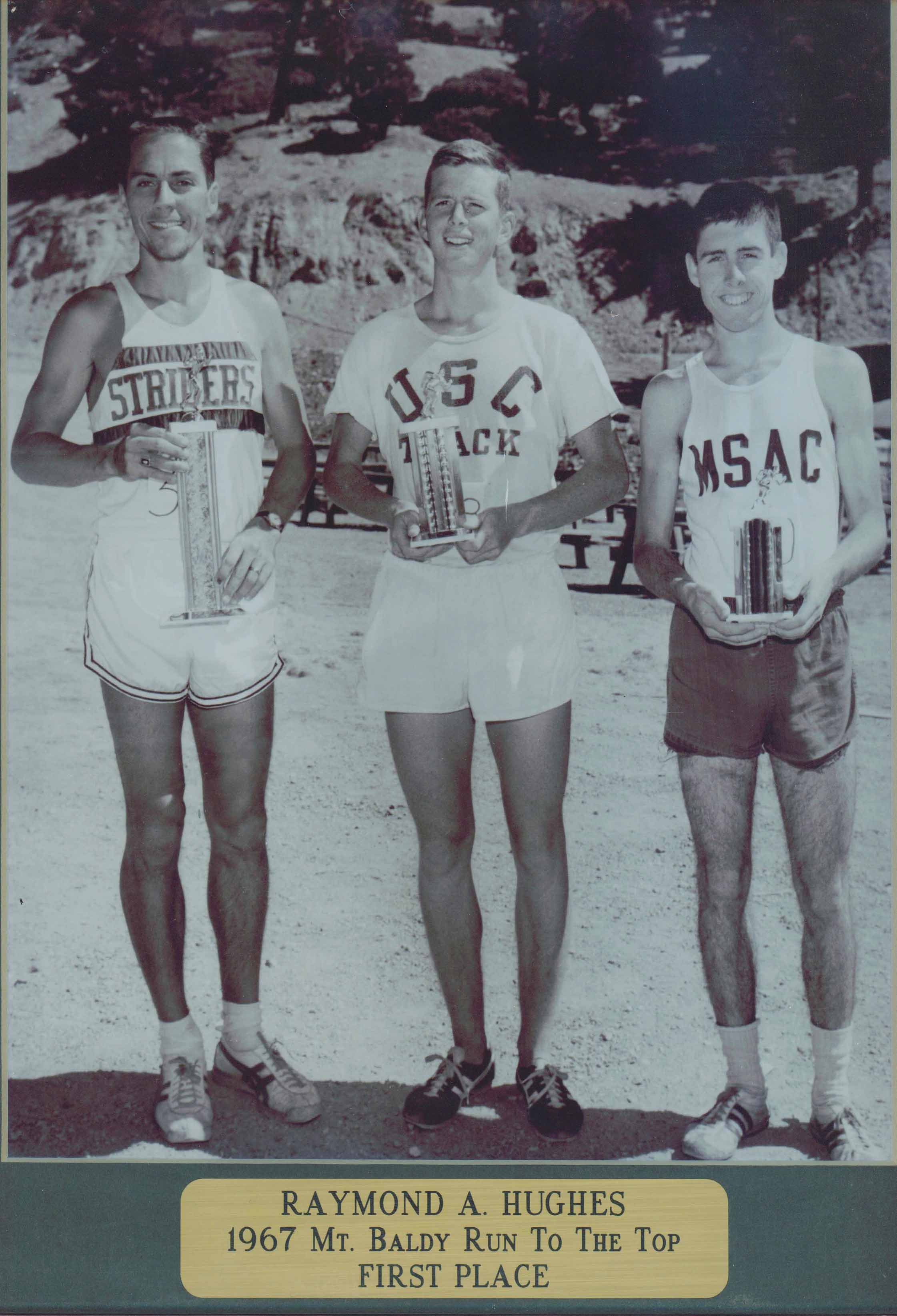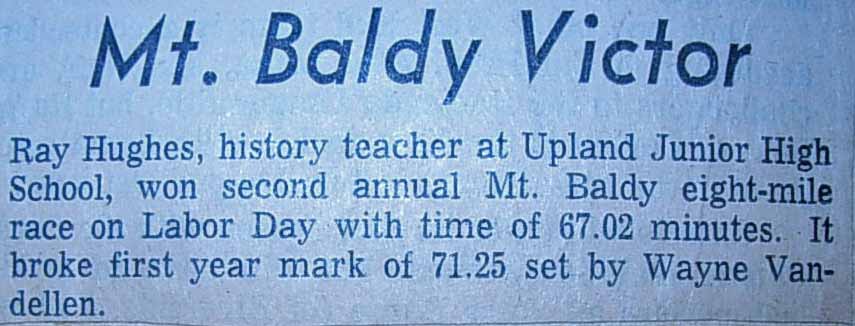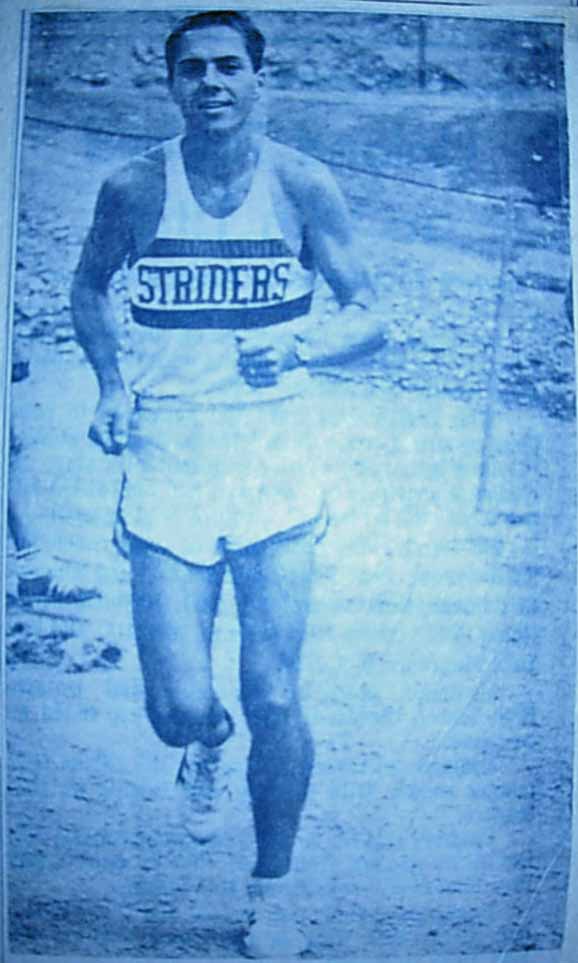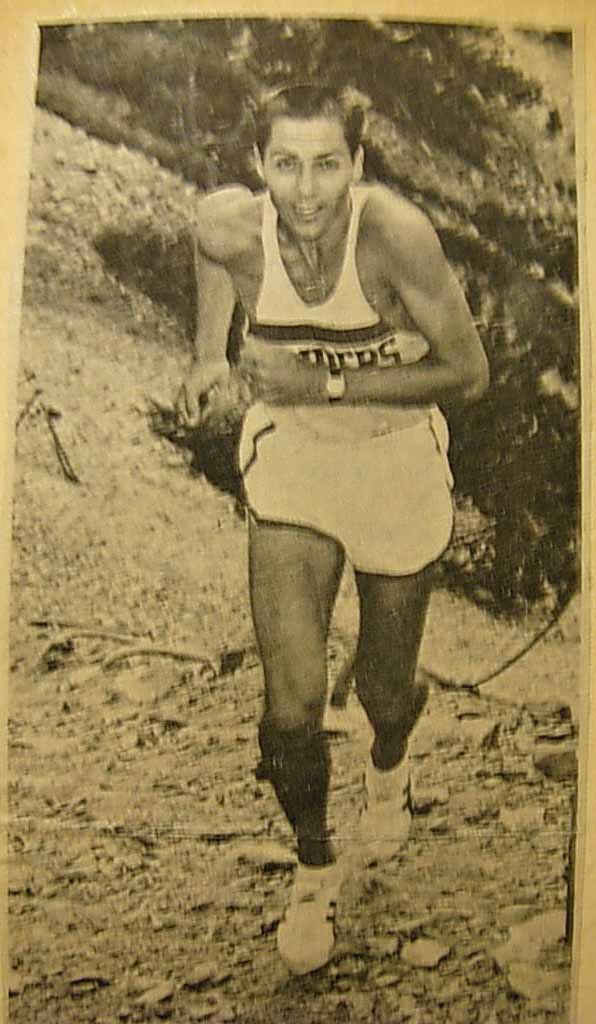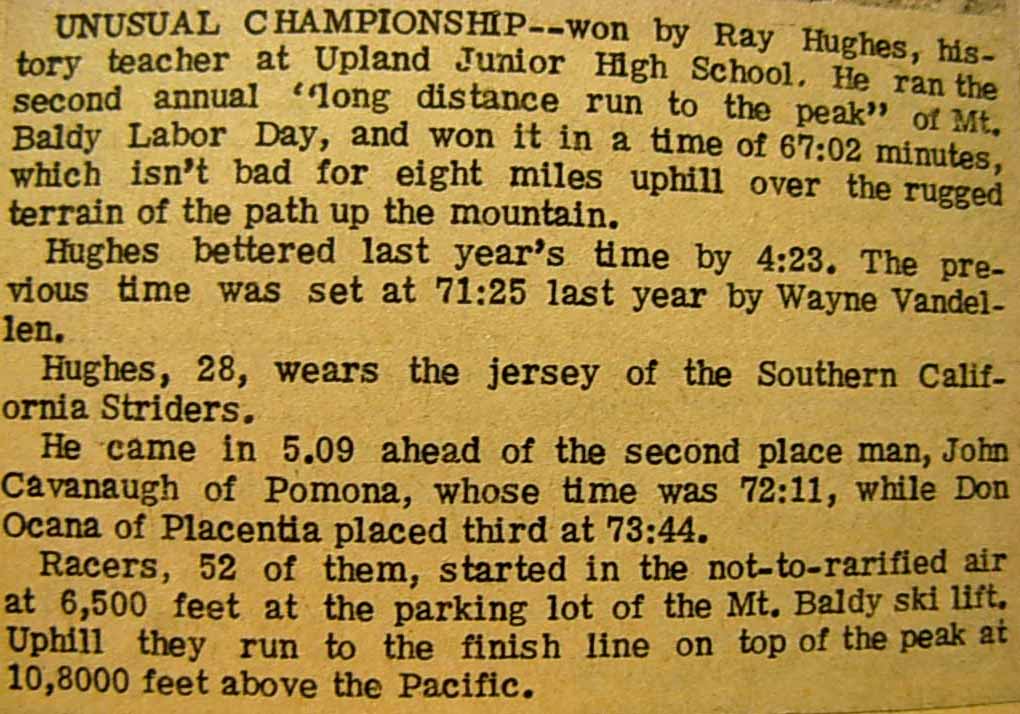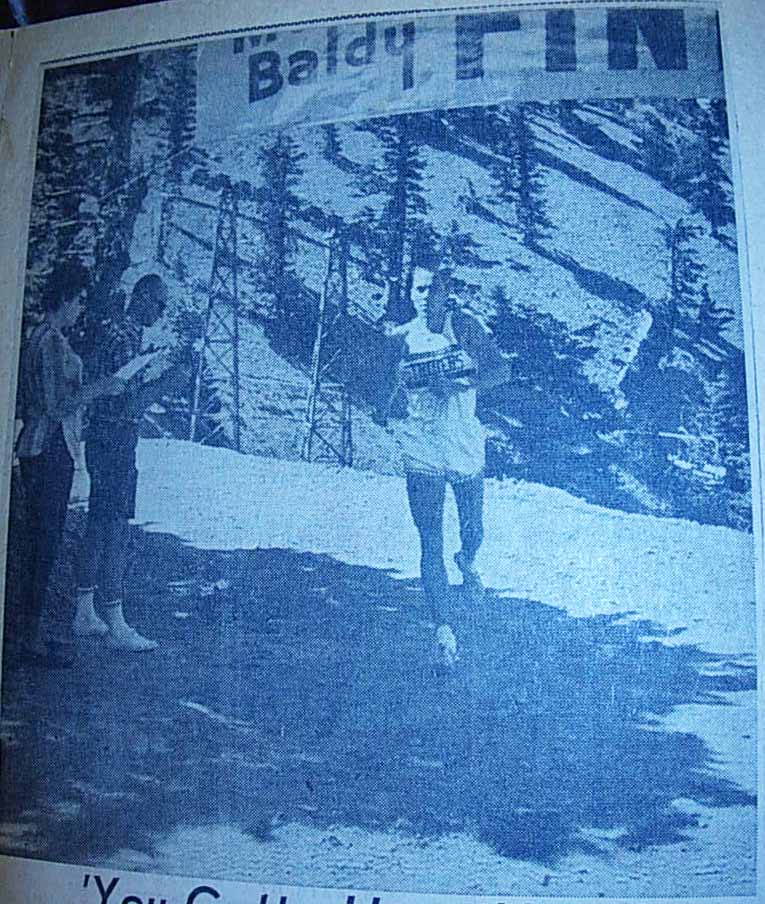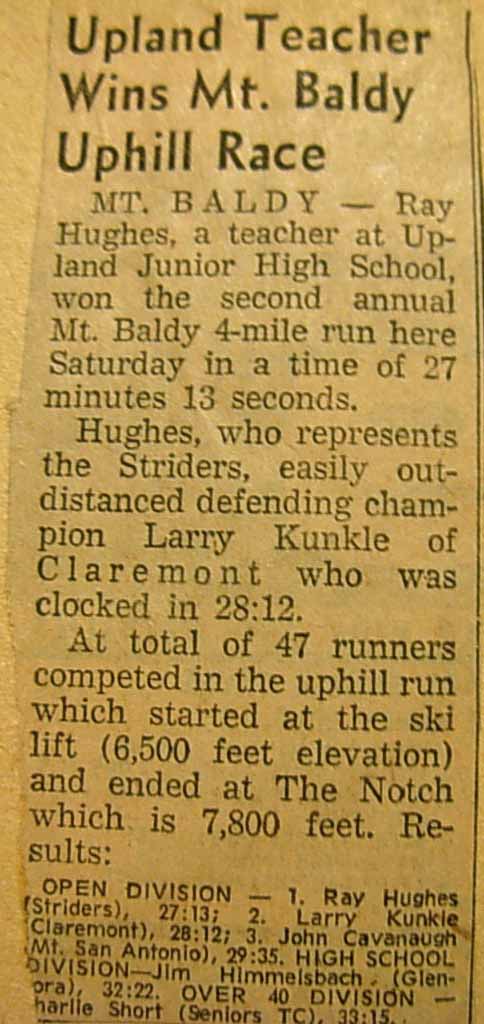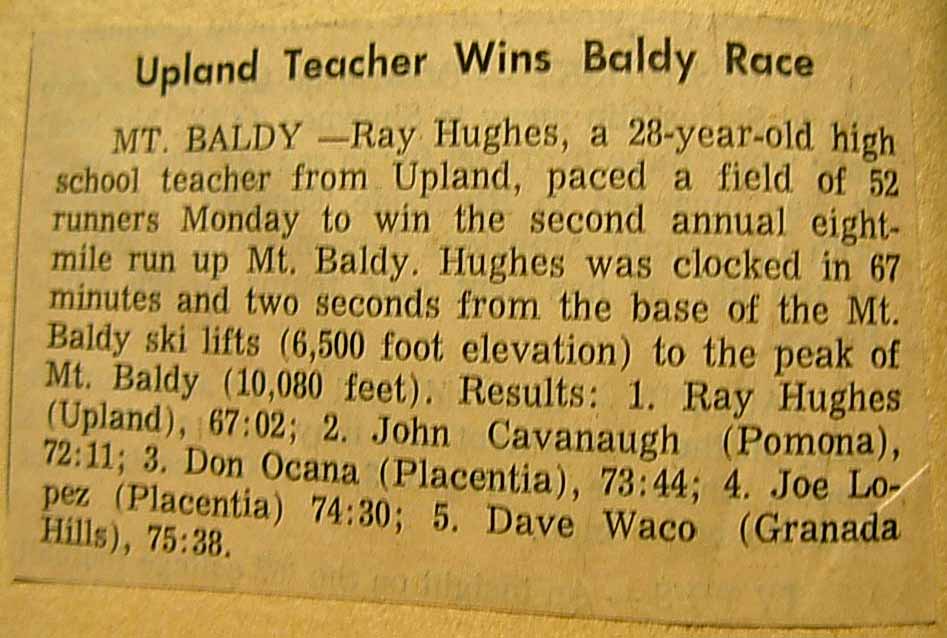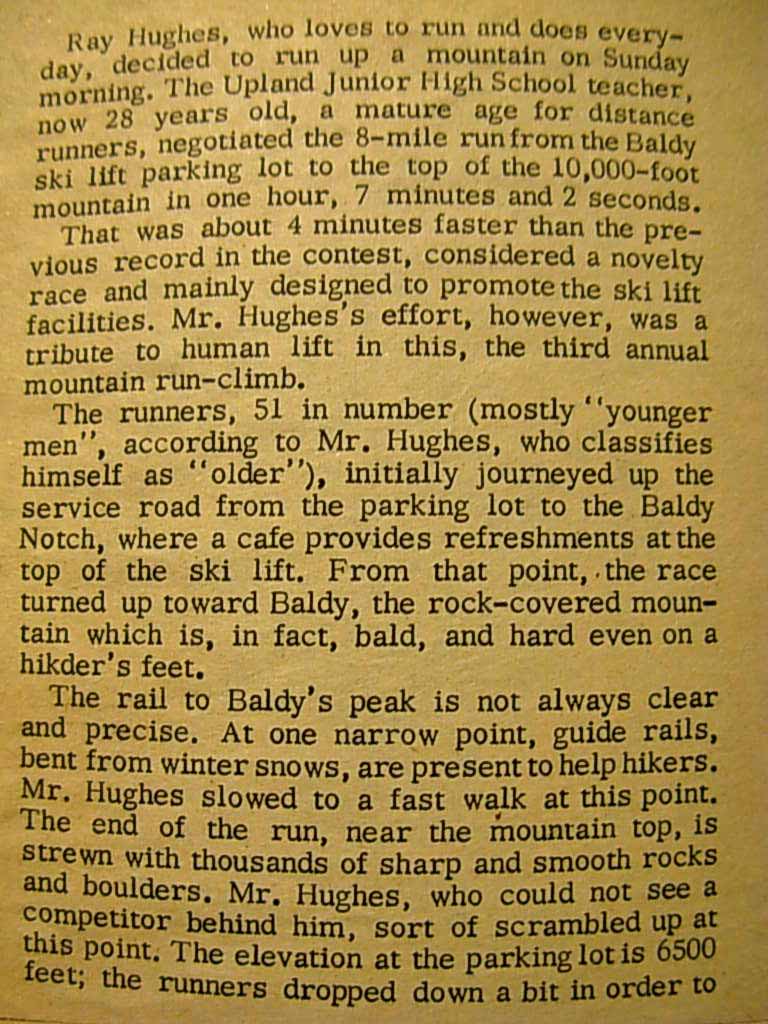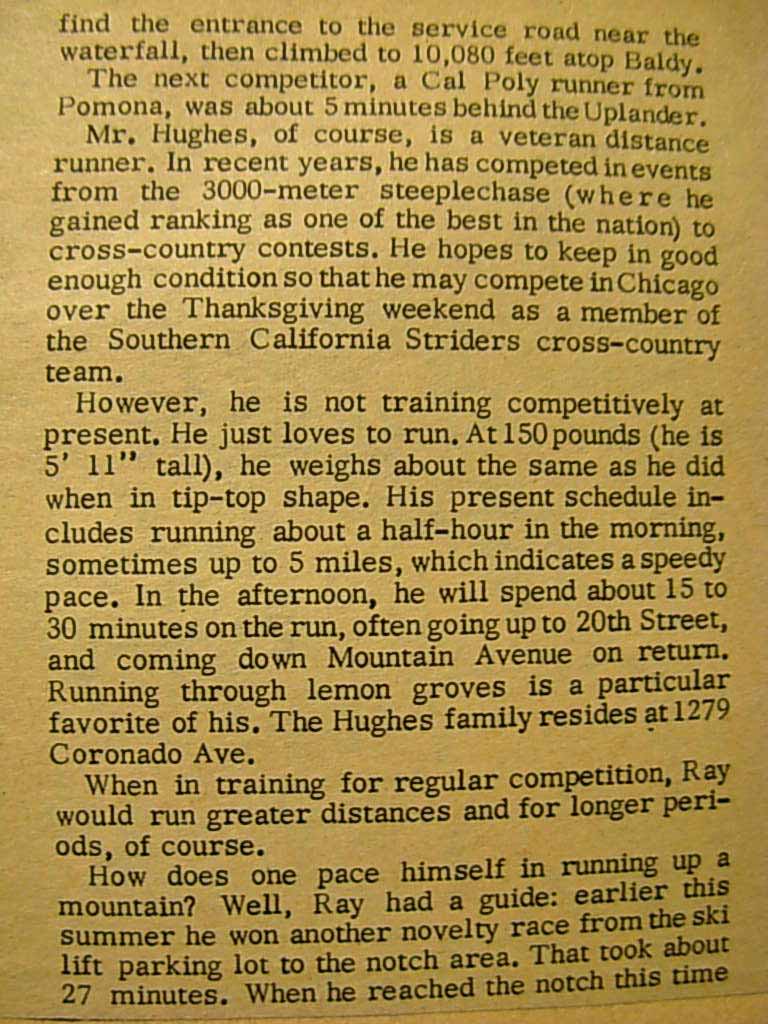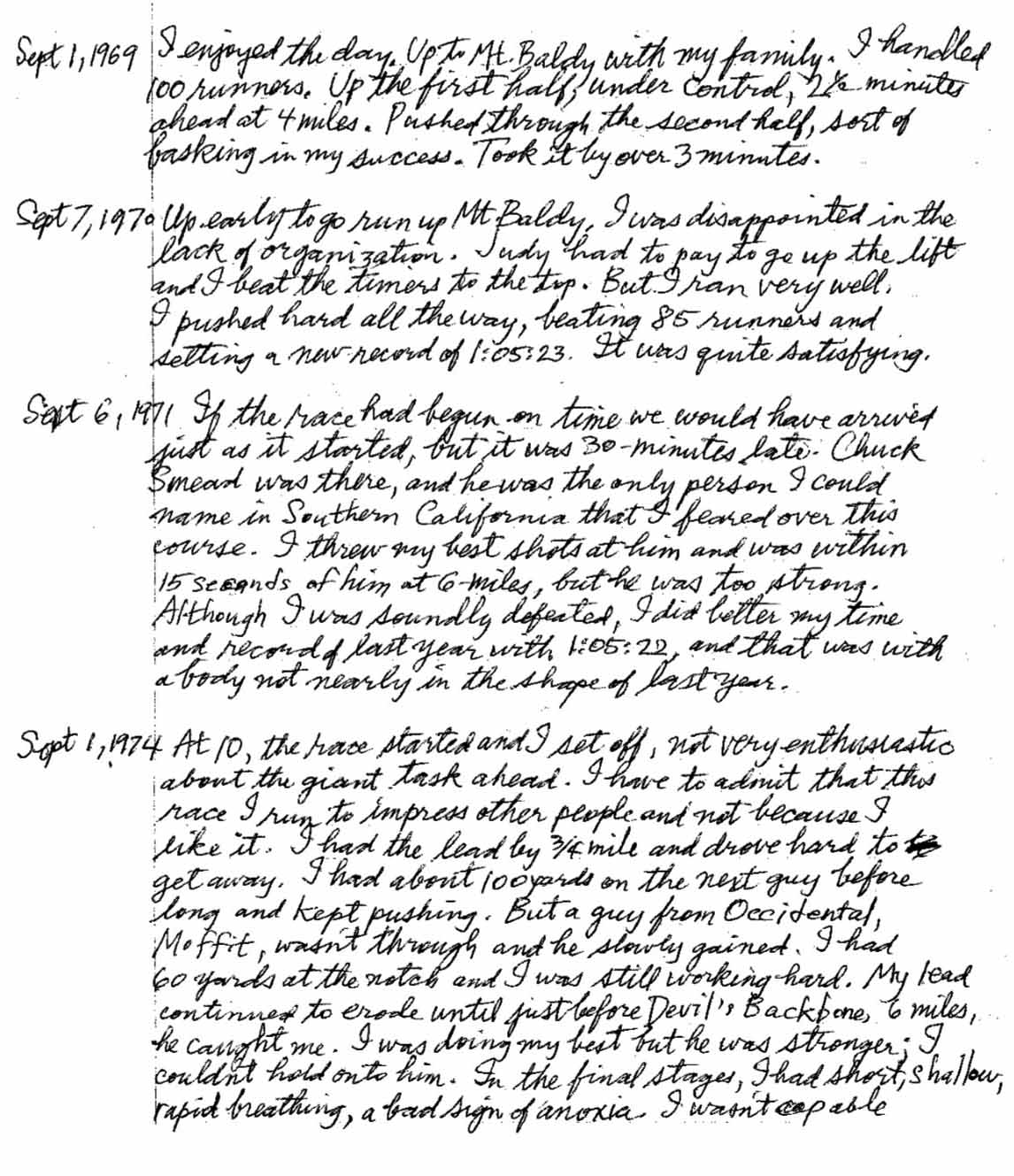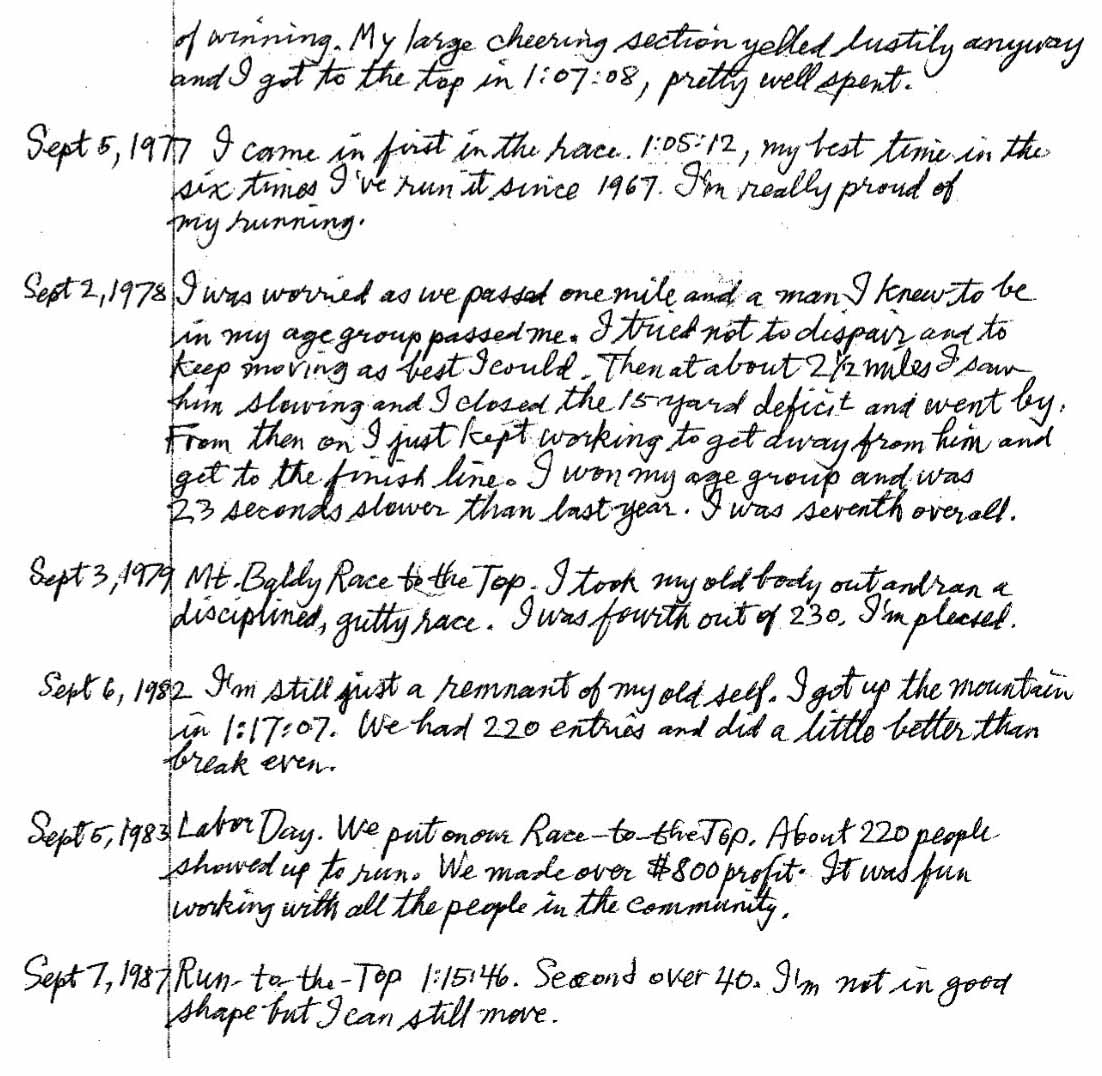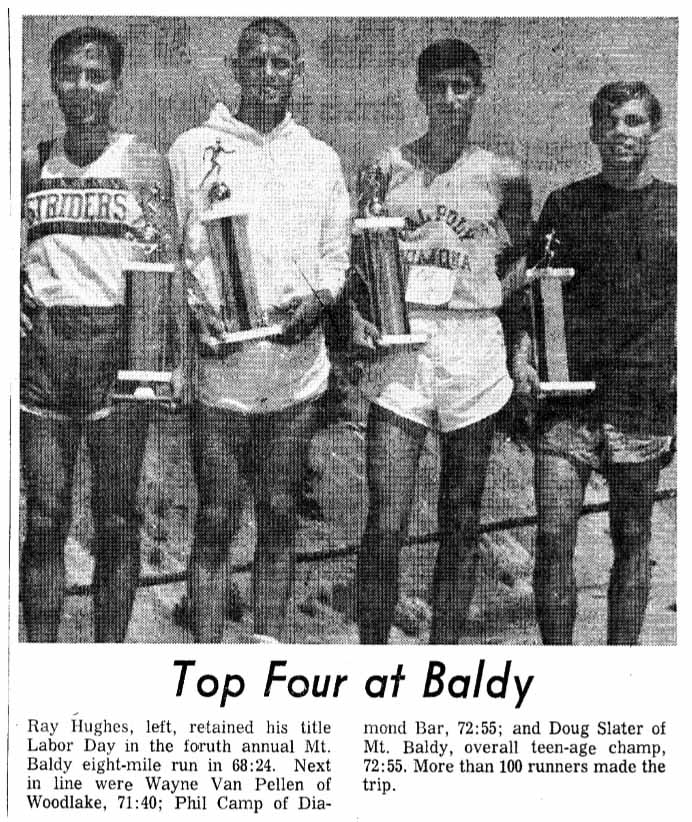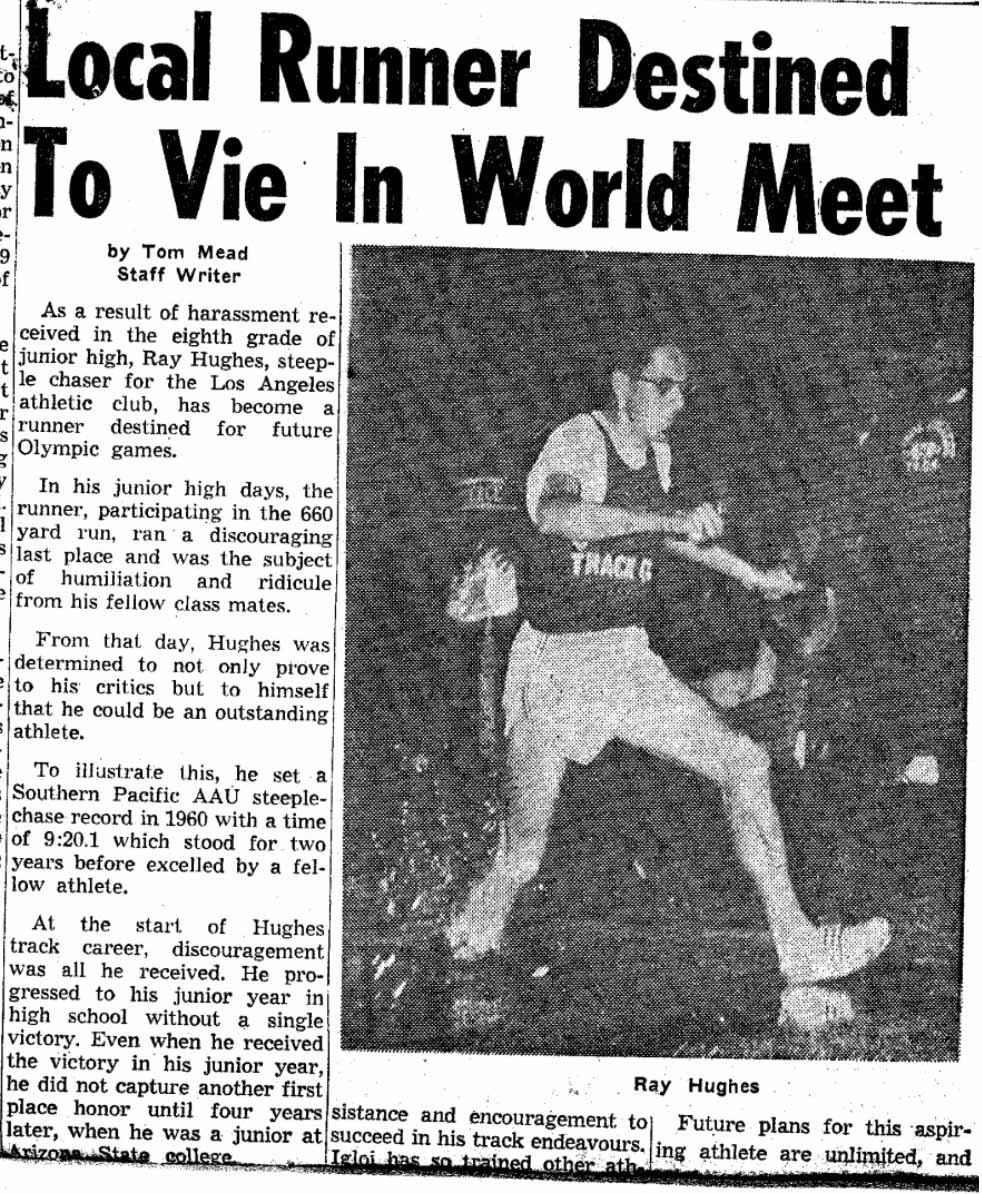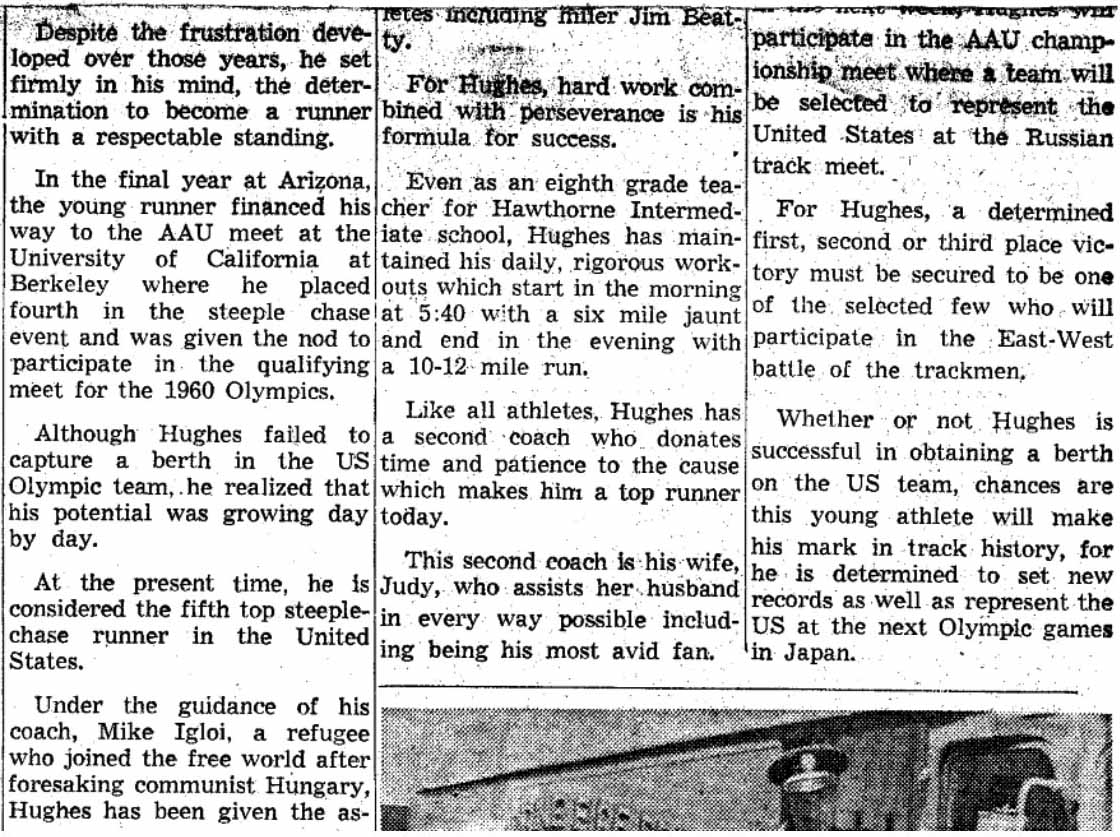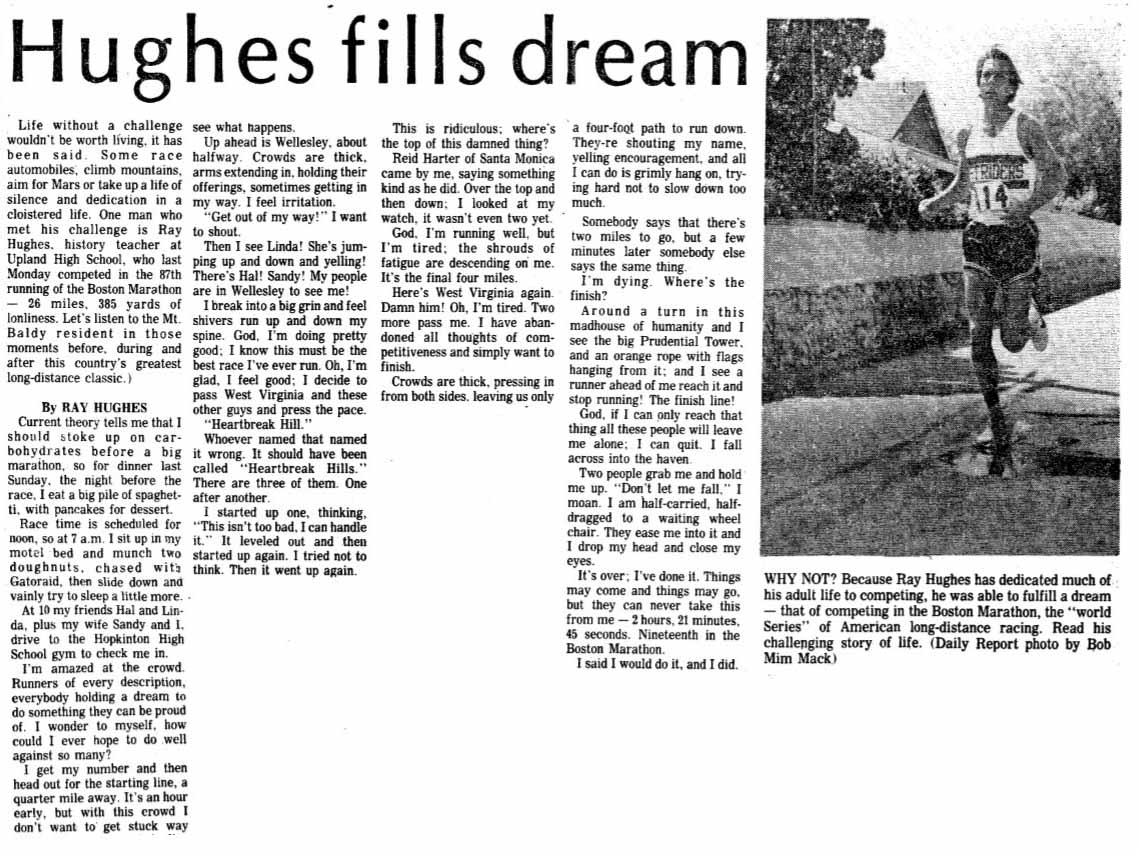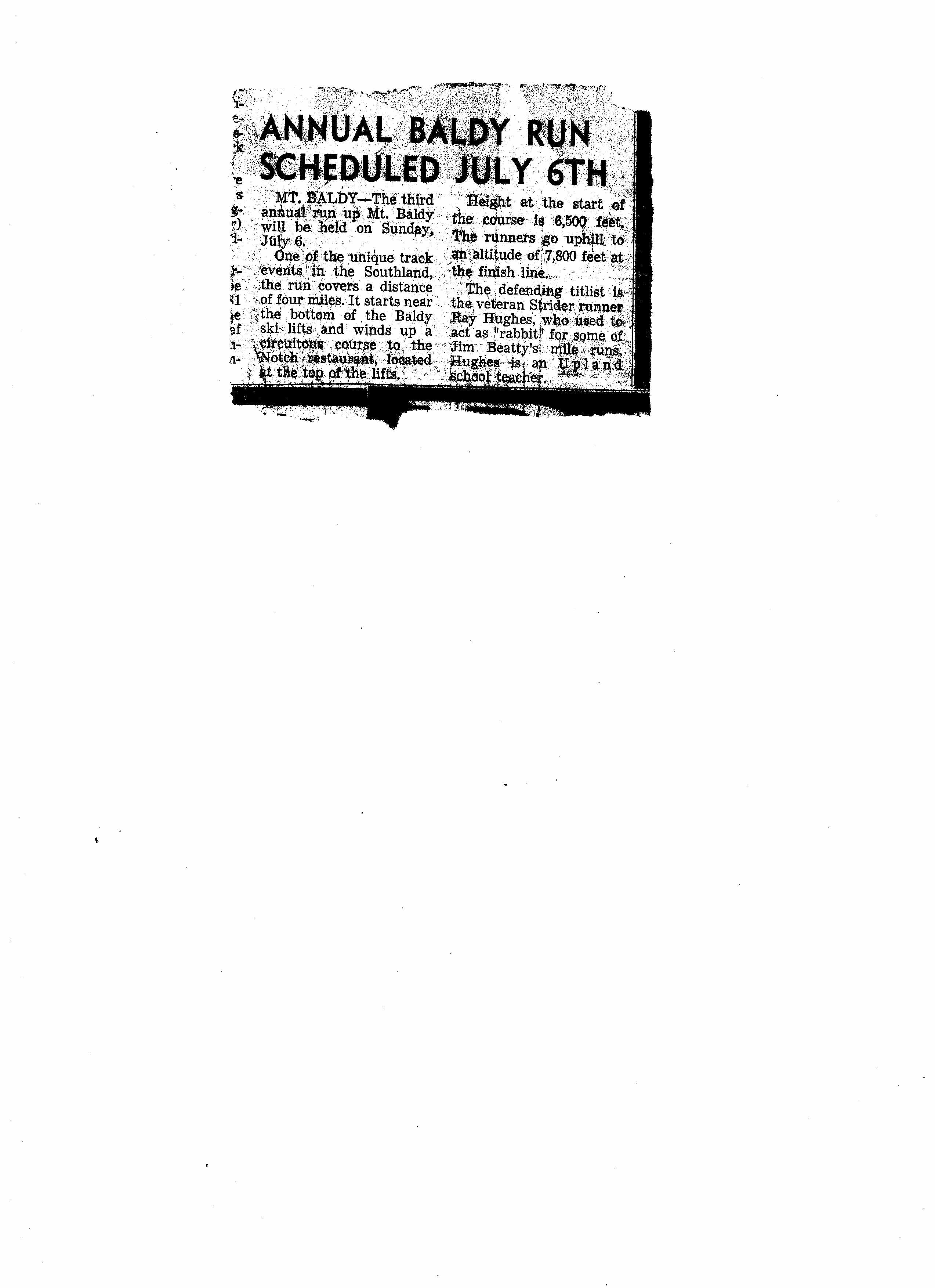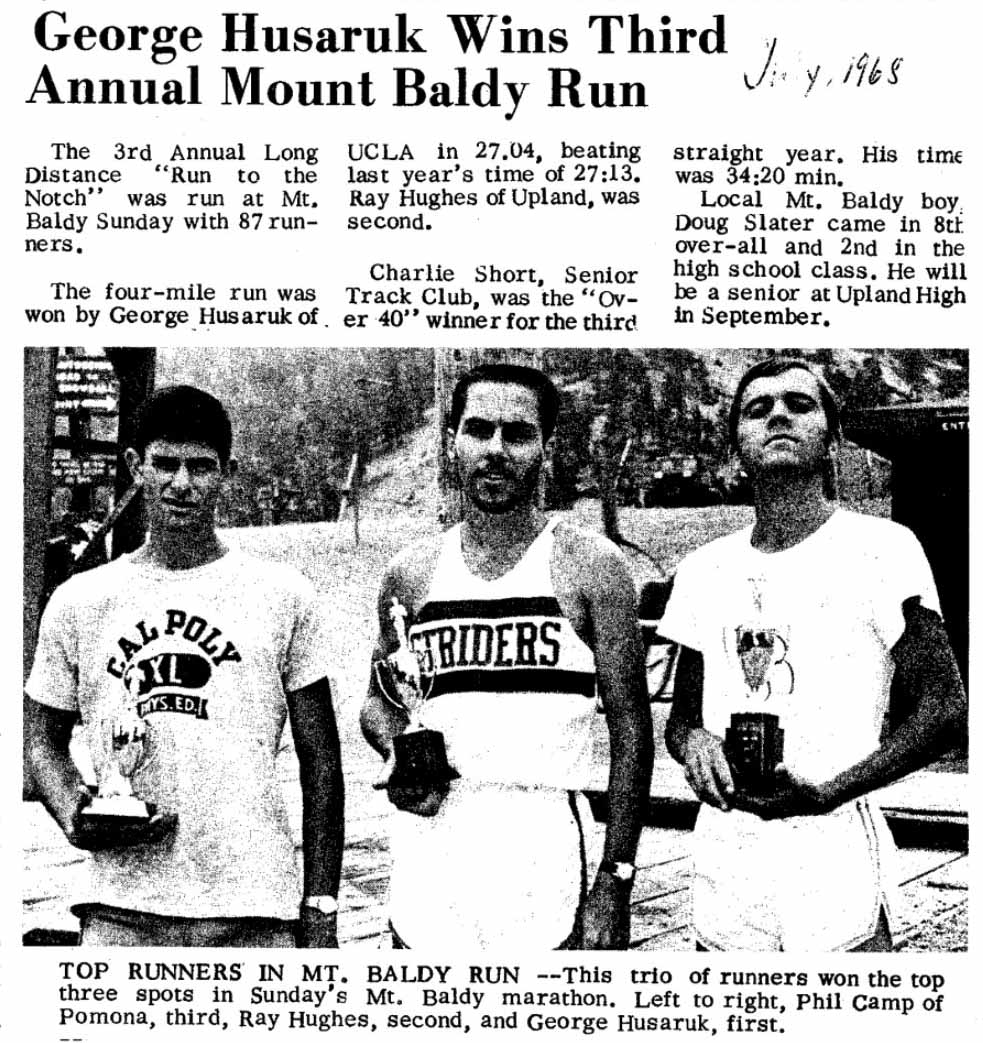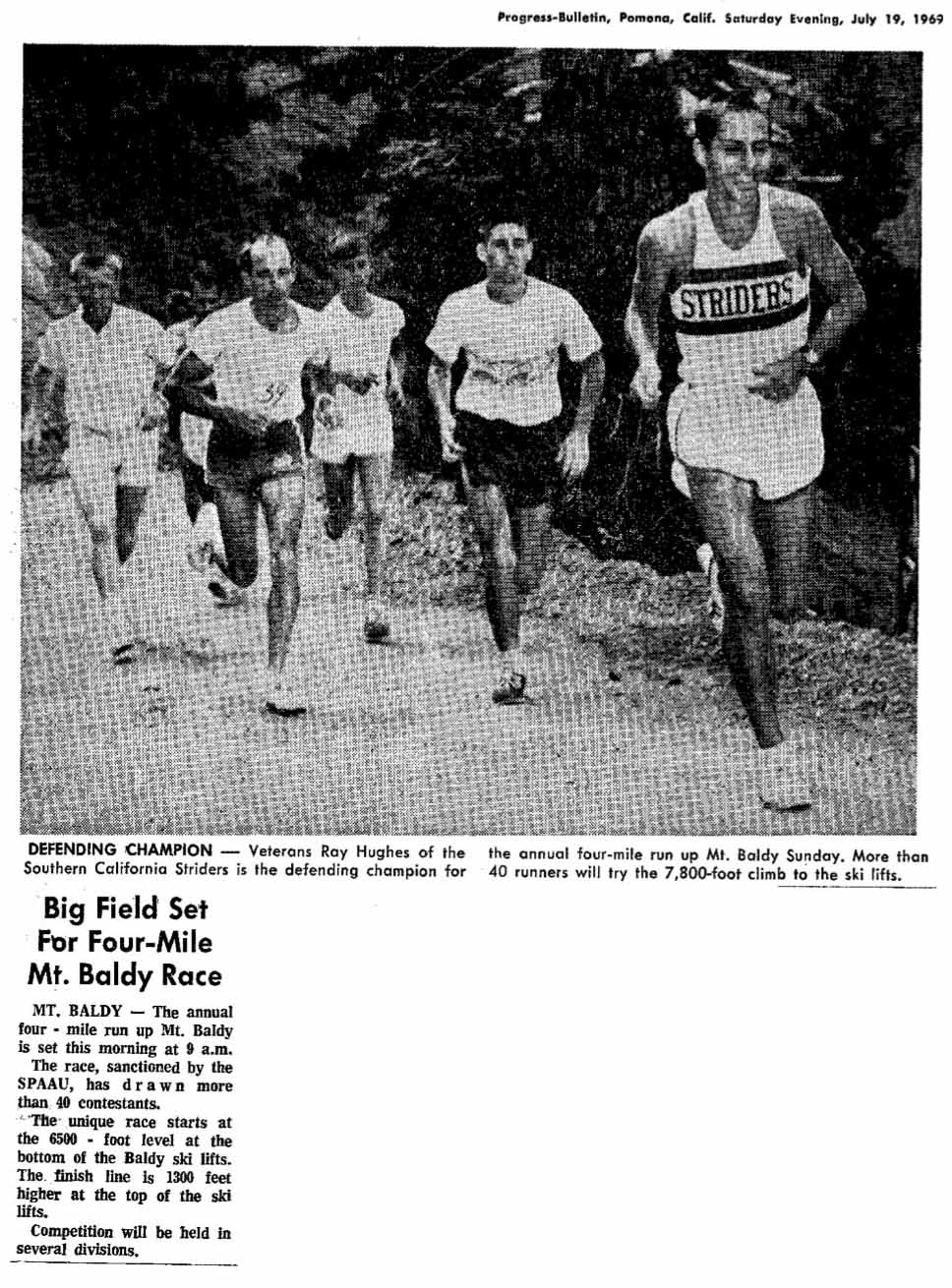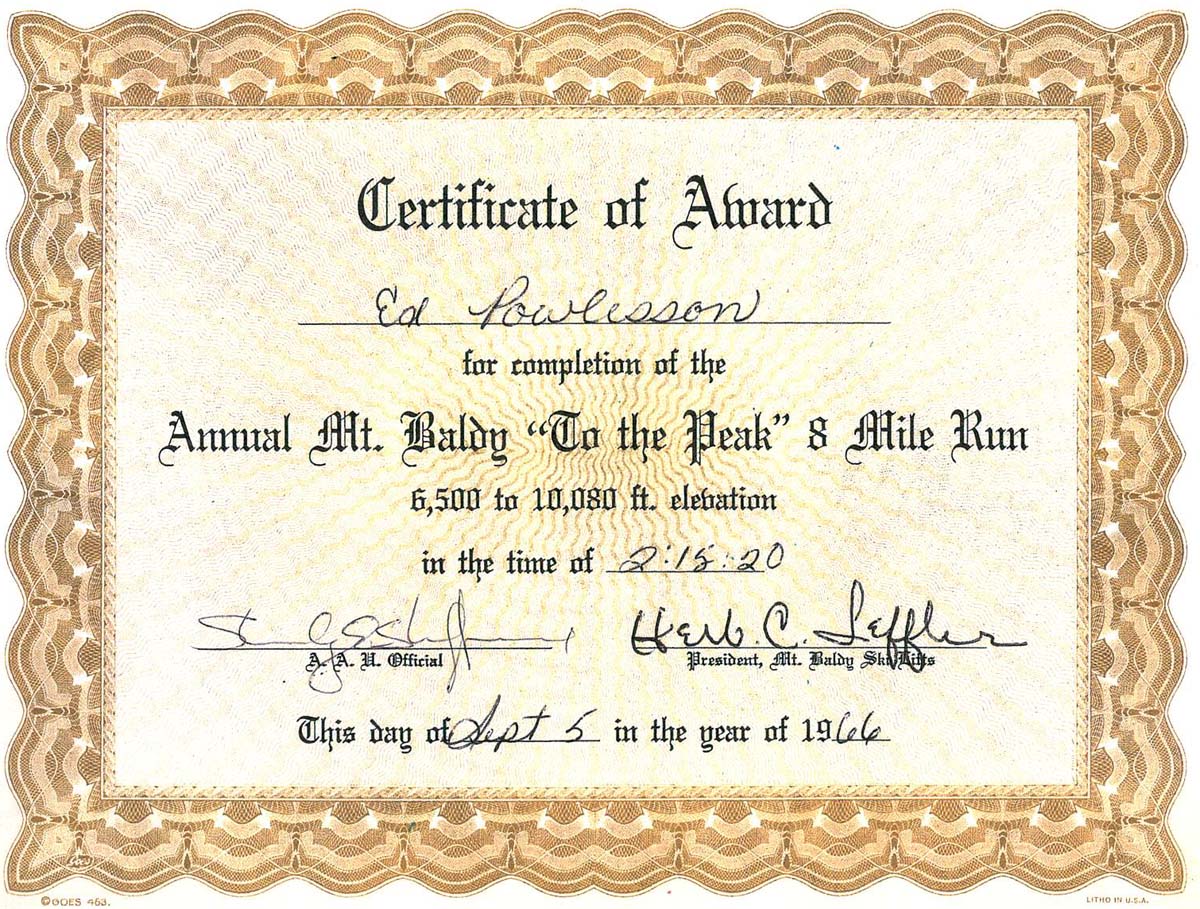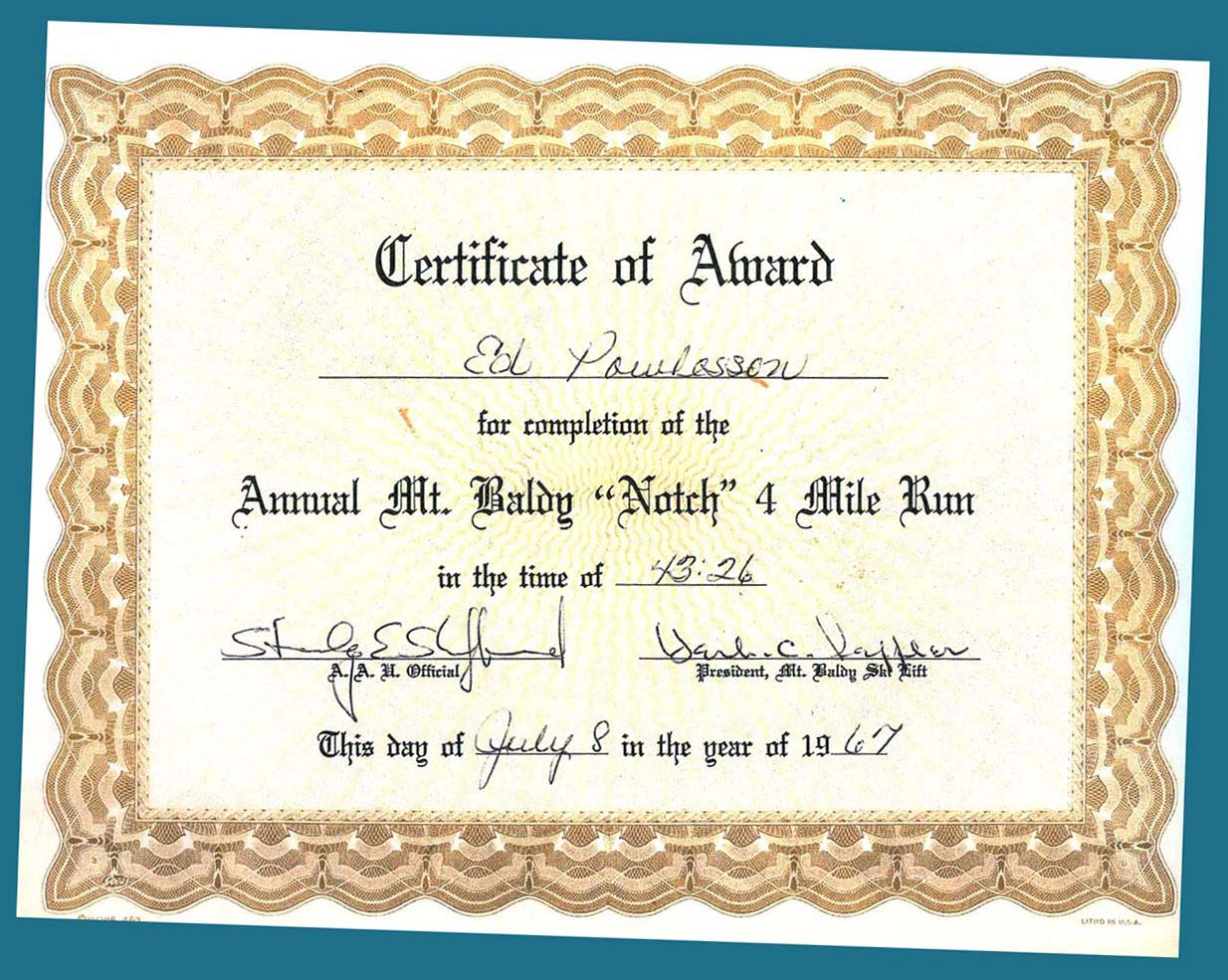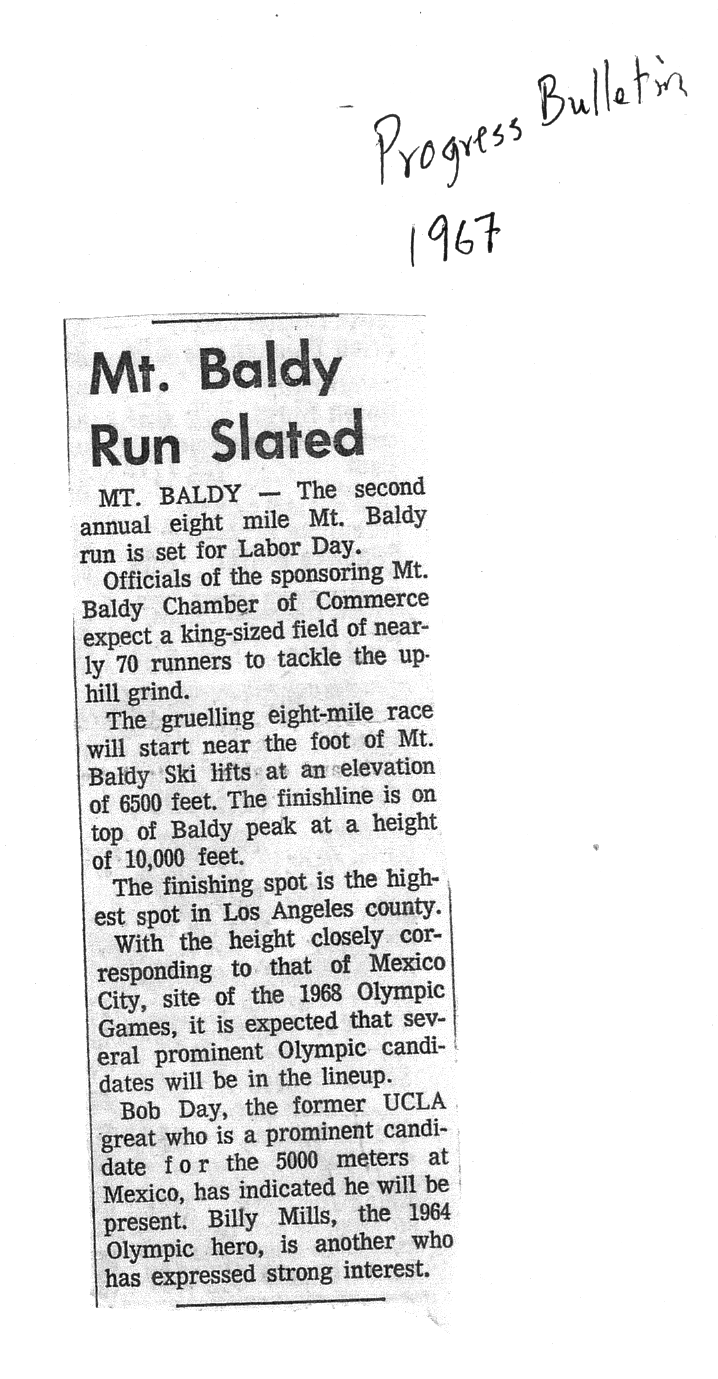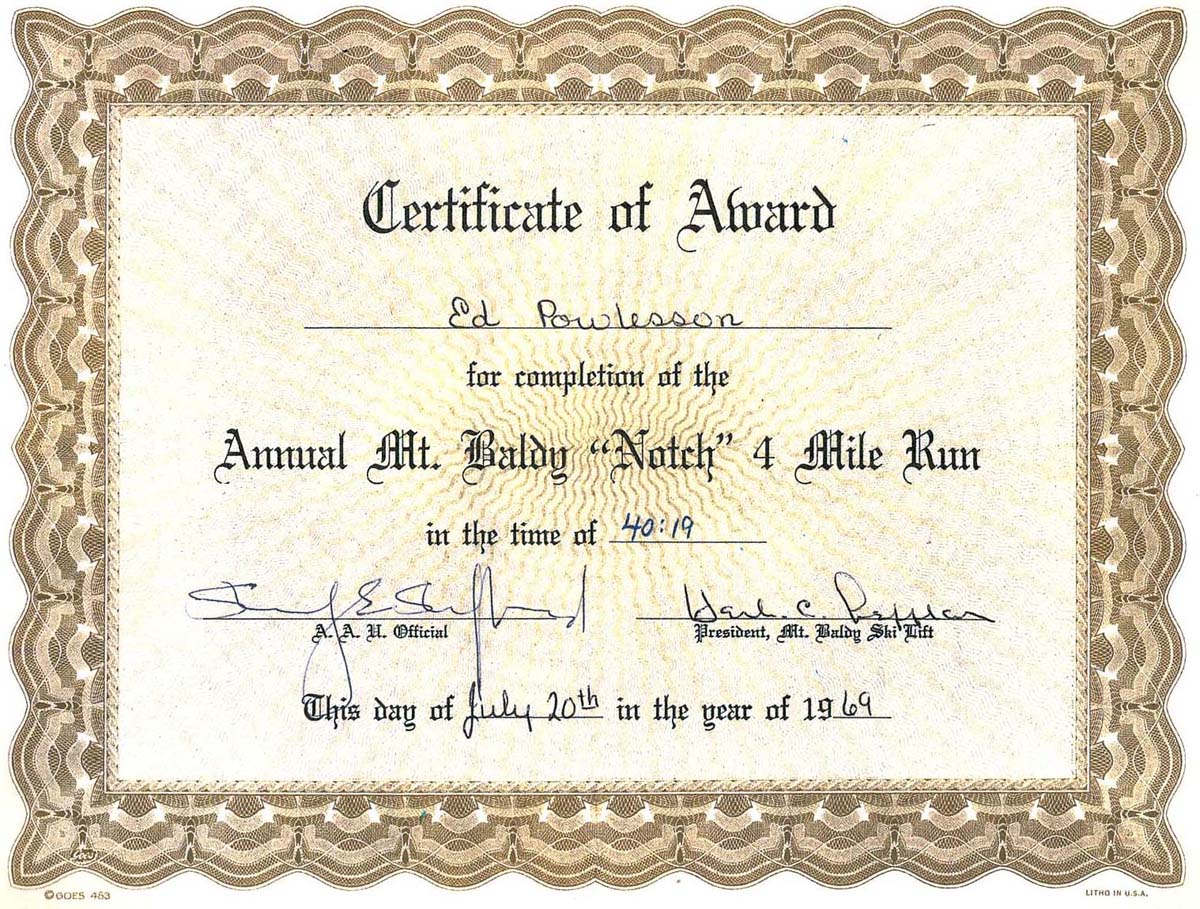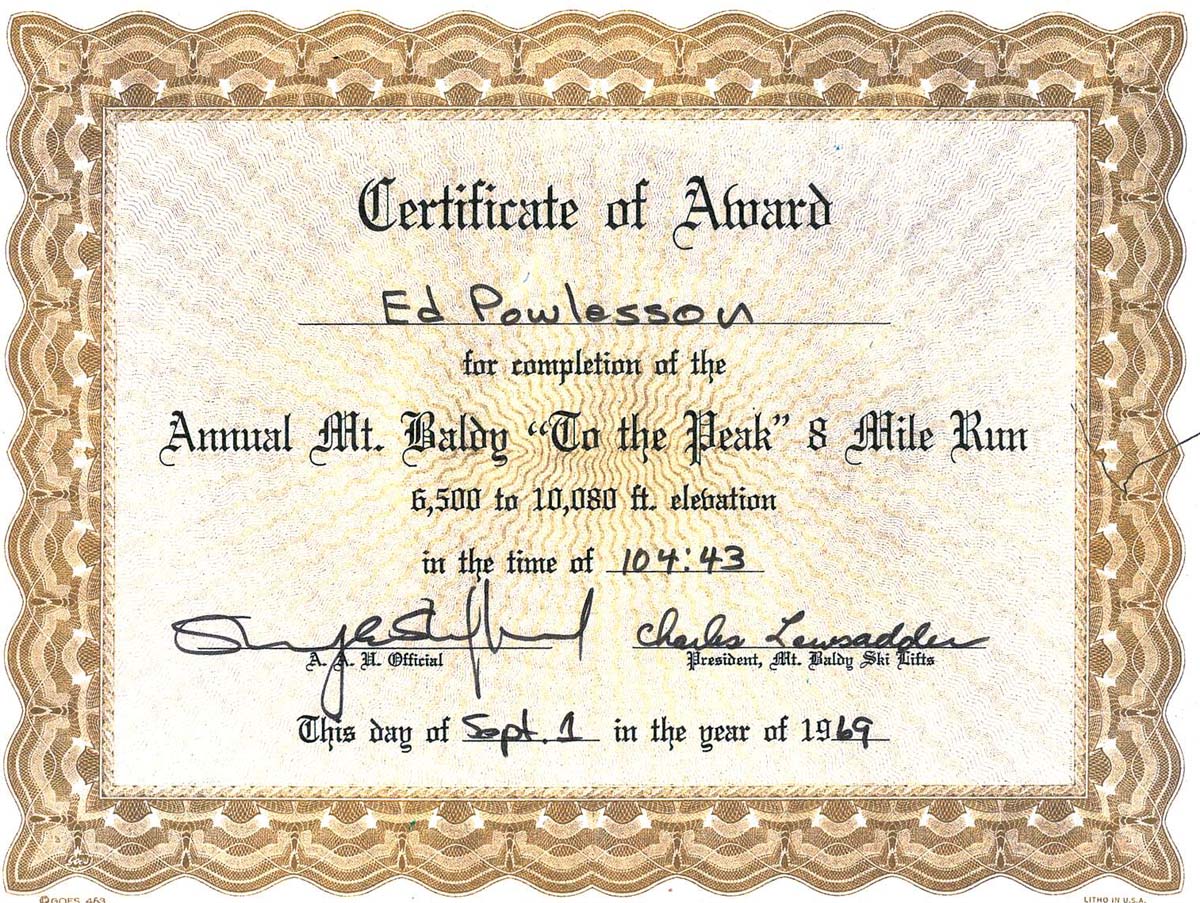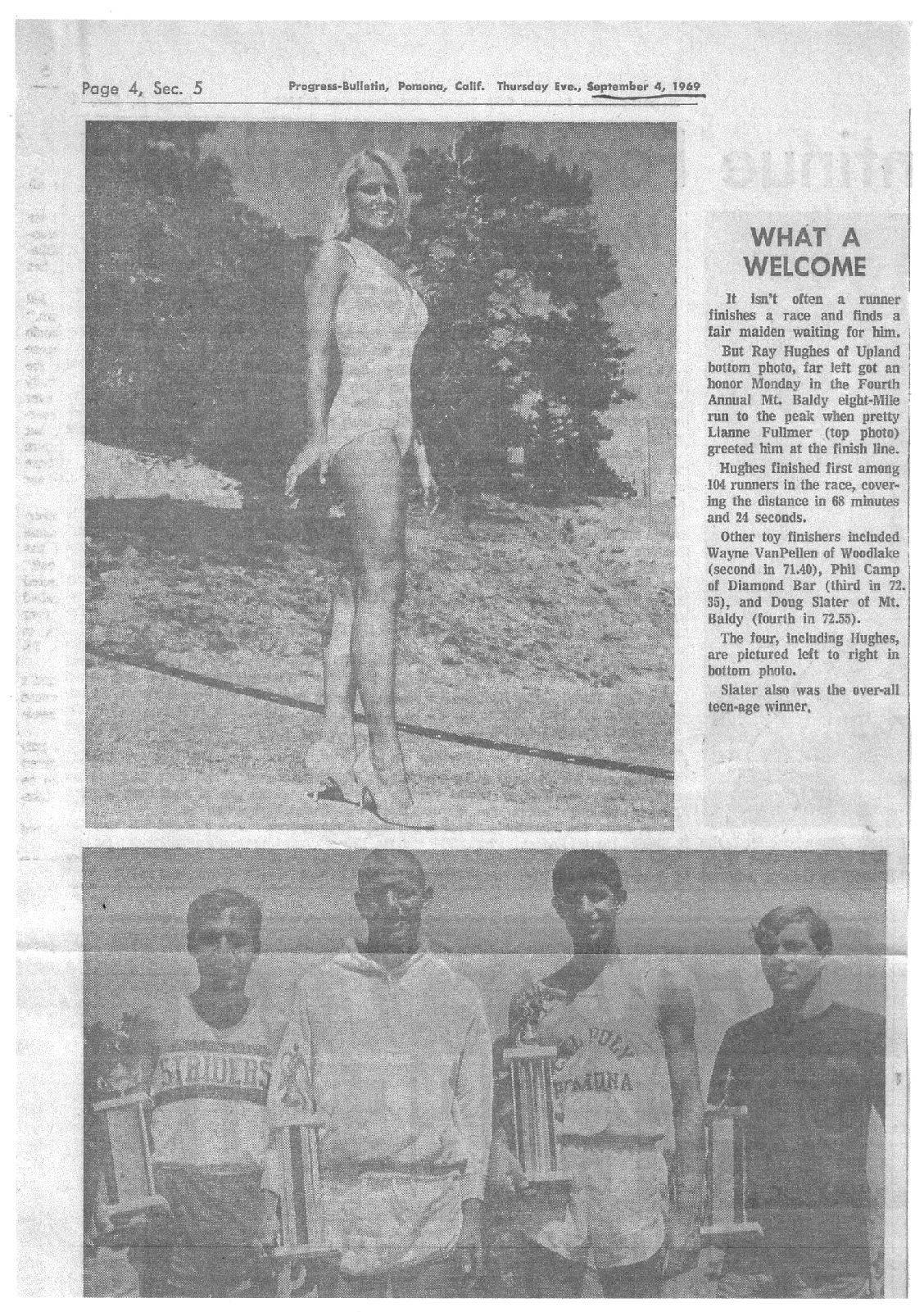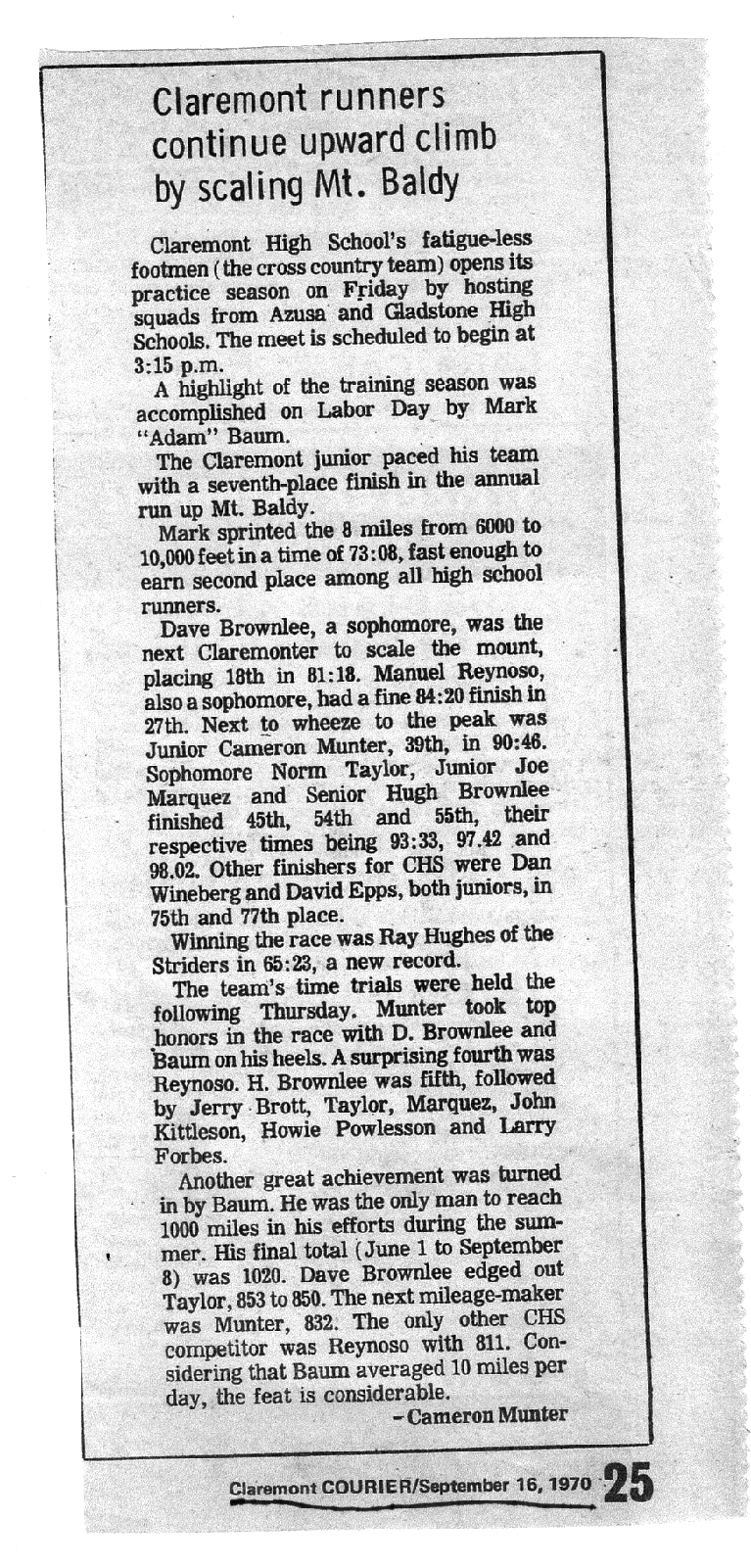Mt. Baldy Run-to-the-Top Trail Race Brief History By Tracy Sulkin 7/19/18 (Updated June 12, 2024)
•
• A 1968 newspaper article wrote: The race was “…considered a novelty race and mainly designed to promote the ski lift facilities.” (The race went from being a “novelty race” to one of the most respected and feared races in Southern California. The race even has a following. Many of the participants have been running it for years and some for decades.)
• In the early years, the race may have been referred to as the “Mt. Baldy Climb” or “Run to the Peak” or “Run up Mt. Baldy.”
• In the first year, there were only 45 participants. The numbers started creeping up. Now, the max is 650. We hit that number twice, first in 2014 and then in 2015 (the 50th annual).
• First women in 1971 were actually three young girls.
• Very first “1st Overall Female” was future Olympian Mary Decker (Slaney) when she was 12 years old, in 1971. (1:34:02) (Famous Olympics incident: In 1984, during the 3,000meter track race, she got tangled up with Zola Budd and fell, claiming then that Budd had tripped her.)
• Began using a helicopter to get station supplies to the summit for about 40 years. Starting with Life Flight, likely soon after it began service in late 1976, and then eventually Mercy. One time, a helicopter wasn’t available, so Daven Gray and Richard Wingate carried up two 50 lb. water containers each, from
• It takes 65 volunteers (half from Mt. Baldy and those mostly regulars) to help put on the race, plus 30 from West Valley SAR and about 10 from Mt. Baldy Fire.
• Men’s record set in 1987 by Matt Ebiner, age 26 (1:00:49) (Matt has been our MC for the awards ceremony since 2015)
• Women’s record set in 1988 by Carrie Garritson, age 11 (1:15:32)
• Water station #1 Captain Olivia Parker has been volunteering with the race since she was 4 years old.
• In the earlier years, the timing was done manually by using mechanical timers and clicking the time when someone ran across the line. Another person was pulling tabs from bibs and sticking them on a spindle (like a coat hanger). After about 50 tabs or so, the spindle would be run down to the Notch, where they were manually sorted by gender, age
– Over the years, different methods of communication from the summit to the Notch were attempted to transmit the results. Ham radio, which didn’t work well; early cell phones didn’t work well either.
– Computers came into use in later years.
– Then came running
– Then came satellite phones to transmit the data in real time to the Notch to an electronic timing program.
– Then came Wi-Fi to transfer a
1968
1968 Ray Hughes Article. Click images to view.
Extra





